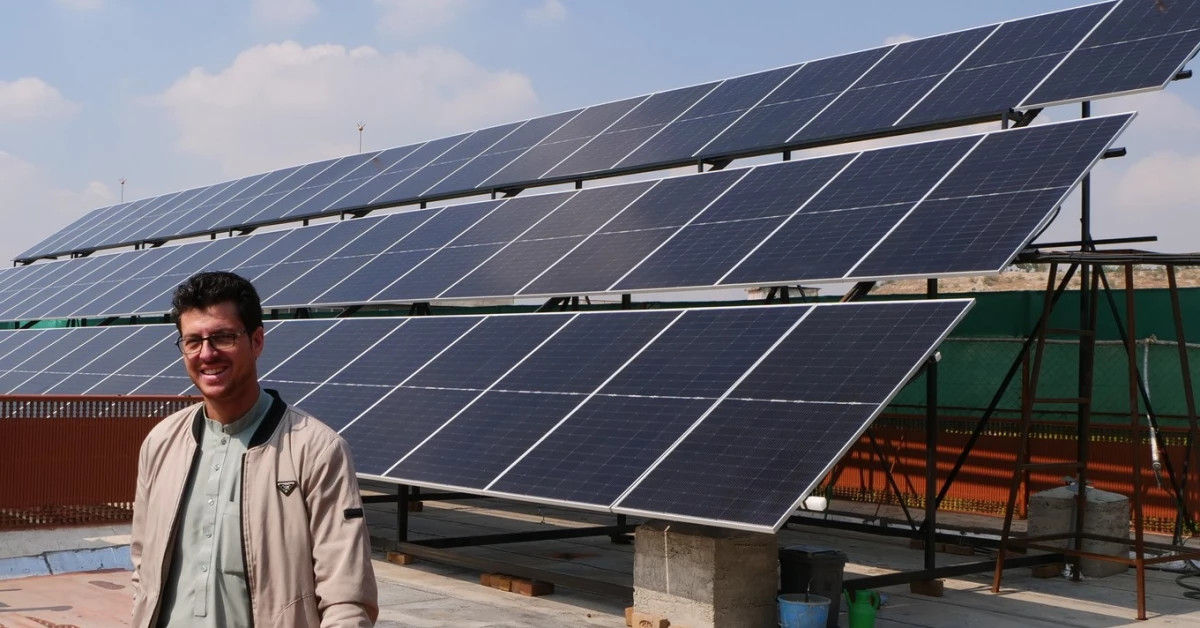Powering a Sustainable Future in Afghanistan
October 23, 2024

This initiative is part of a broader commitment to having eco-friendly operations, addressing both immediate operational needs and long-term sustainability goals. By transitioning to renewable energy, we are not only reducing our energy costs but also actively contributing to the fight against climate change. “Afghanistan is particularly vulnerable to the impacts of climate change due to its diverse geography, socio-economic challenges, and reliance on agriculture,” says Mohammad Aziz, PIN Afghanistan Logistics Manager.
A Green Energy Solution for the Future
The adoption of solar power enables our team in Afghanistan to harness one of the most abundant and cleanest energy sources available. Solar energy is renewable and emits no pollutants during operation. By replacing generators with a solar system, we are reducing our carbon footprint, which directly addresses one of the primary drivers of climate change.
“In the broader context of environmental impact, our solar panels will help reduce reliance on non-renewable resources like coal and oil. Each kilowatt of solar energy generated at our office not only saves on energy costs but also decreases the pressure on our planet’s finite resources. Recognising the need for sustainability, we decided to transition to solar energy in 2023; we funded this with our internal funds. This solar panel generates 32 KWh and saves $2,000 per month, which means that in the long run, we can recover our costs. The rest would be cost-free energy that we receive from this solar panel,” says Mohammad Aziz.
Aligning with Global Climate Goals
According to the European Union, climate change affects all regions around the world. Polar ice caps are melting, and sea levels are rising. In some regions, extreme weather events and rainfall are becoming more common, while others are experiencing more extreme heat waves and droughts. We need climate action now, or these impacts will only intensify.
Organisations worldwide, whether large or small, have a crucial role to play in mitigating these effects, and People in Need Afghanistan is proud to contribute to this goal. By reducing our reliance on electricity from generators and the grid—which is often generated using fossil fuels—we ensure a more sustainable use of energy. Moreover, this shift reflects our alignment with the UN Sustainable Development Goals (SDGs), specifically Goal 7 (Affordable and Clean Energy) and Goal 13 (Climate Action). We understand that meaningful change begins locally. Through this initiative, we aim to inspire others to adopt similar green energy practices.
Office Greening: A Holistic Approach to Sustainability
Beyond the financial savings and environmental impact, installing solar panels is part of PIN Afghanistan’s larger effort to create an eco-friendly workspace. The concept of office greening goes beyond using clean energy; this includes energy-efficient lighting, waste reduction practices, promoting digital alternatives to paper use, and creating an environment that is not only more energy-efficient but also healthier for our team.
PIN Afghanistan’s Vision for the Future
People in Need Afghanistan’s focus will remain on reducing our environmental impact through continued innovations in office greening and sustainable practices. We believe that each positive step, no matter how small, contributes to the larger global effort against climate change. Whether through the installation of solar panels, reducing waste, or promoting eco-conscious behaviours within the office, our commitment to sustainability will remain a core pillar of our operations.
Search
RECENT PRESS RELEASES
Related Post




